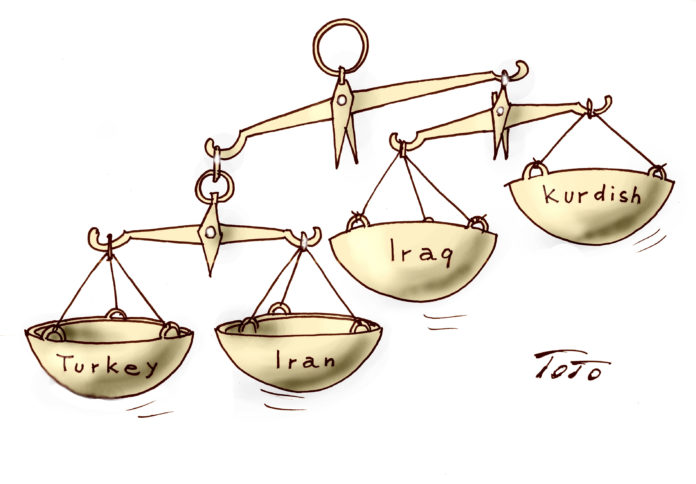The referendum held on September 25 in Iraqi Kurdistan triggered a political movement in the entire Middle East, whose outcome is difficult to forecast at this time.
It is ironic that in another part of the world, namely Europe, a simultaneous struggle for independence began. Indeed, Catalonia held a referendum on October 1 to leave Spain, when centuries-old frustration came to a head. With almost the same size of the population as Iraqi Kurdistan, 7 to 8 million, Catalonia was brought under Spanish rule in the 15th century, during the reign of King Ferdinand of Aragon and Queen Isabella of Castile. The Catalans suffered most under the fascist rule of General Francisco Franco (1938-1975), who went so far as to ban the language, much like the fate of Kurds under Turkish and Iraqi rule, thus threatening to destroy their identity. Catalonia’s referendum sent tremors throughout Europe, especially in Scotland and Belgium, where irredentism is ripe to explode any time.
The only difference between Catalonia and Iraqi Kurdistan is that the former faces one opposing force, Spain, while the latter by at least four, and major powers still waiting in the wings: Turkey, Iraq and Iran have all been mobilized to stifle Kurdistan’s aspirations for independence. Syria is too fragmented and weak to join the fray but, in principle, shares the same policy as its neighbors regarding Kurdistan.
Kurdistan’s referendum marks the demise of the Sykes-Picot Treaty of 1916 and opens a Pandora’s box in reviving the Treaty of Sevres of 1920, in which Armenia holds a share, too.
The Kurds in Iraq took a few very strategic measures to consolidate their internal base on the domestic front and to occupy the oil-rich region of Kirkuk after helping Iraq to defeat ISIS forces occupying that city.
Iraqi Kurdistan is ruled by two families, Talabanis and Barzanis, who to this day, maintain their separate militias which have been at odds most of the time. Those forces, called Pesh Mergas, concluded an understanding on the domestic front and helped the US forces in clearing ISIS from the Iraqi territory. A total of 5.2 million (or 72 percent) of voters participated in the referendum, with 93 percent casting a “yes” vote. The conclusion of the referendum vote does not automatically mean independence. It only gives a mandate to begin negotiations with the national government in Baghdad, whose prime minister, Haidar Al-Abadi, is in no mood to negotiate. He is asking the results of the vote to be annulled before sitting at the negotiation table.








